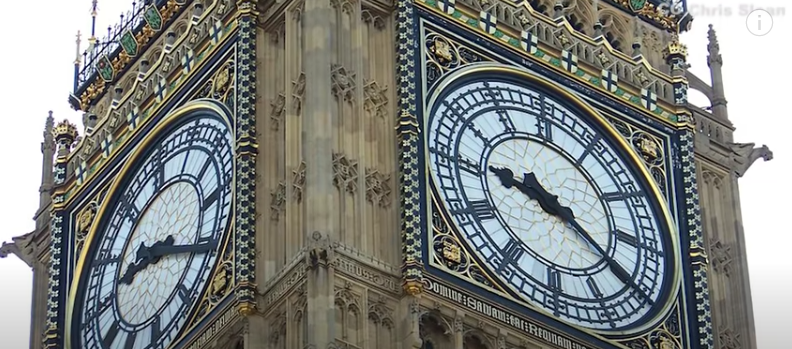
It is quite something for a government to challenge via judicial review the use of legal powers exercised by an inquiry it set up, run by a judge it appointed, with terms of reference it drafted.
Why? Two broad reasons:
(1) The need not to impede good governance (do stop laughing) by disclosing Ministerial/civil service communications which the government thinks irrelevant.
(2) Concerns about personal communications and the private life of governmental witnesses. This latter point features quite strongly in the grounds drafted by the government’s counsel (here) with references to Article 8 of the ECHR. (Yes, that stench of governmental hypocrisy is a bit much but the spectacle is enjoyable so let’s wrinkle our noses and keep watching).
For all of Sir James Eadie KC’s lengthy analysis, this is a straightforward fight about power: who / whom. Who should determine whether evidence is or is not potentially or actually relevant to the matters the inquiry has been asked to consider? The inquiry judge thinks, under the powers granted to her by statute, she should decide. (The questions of what gets disclosed let alone what gets published are for later. This fight is just about the first stage – what gets produced.) The government thinks its witnesses (and government lawyers) should decide whether or not their material should be produced. That this creates an obvious conflict of interest for them seems not to trouble it. There again, the recognition – let alone avoidance – of conflicts of interests has never even entered this government’s head these last 4 years. That the relevant legal provision (S.21(4)(b) of the Inquiries Act 2005) says that it is the Inquiry Chair who decides, if a person objects to production, also seems not to trouble the government. Nor that they have to consider “the public interest in the information in question being obtained by the inquiry” (S.21(5)). Those pesky laws, eh!
The first reason can be dismissed quickly. There are a number of current inquiries (the Post Office, blood contamination, Grenfell) which have released the embarrassing communications of Ministers and civil servants. The government has not sought to prevent those. Nor did it try to stop Mr Hancock from releasing Ministerial and civil servant WhatsApp messages for his private benefit.
The second is more interesting and revealing. Most inquiries relate to what Ministers did or did not do qua Ministers. Covid was different. The disease affected or potentially affected every single person in the country from the sovereign down. The actions taken affected every single person in the country from the sovereign down, every business and organization and, crucially, both the public and private conduct of Ministers and civil servants. The restrictions imposed were an unprecedented (in peacetime) assault on our freedoms and private lives, an assault carried out (as I argued here) in an “arbitrary, cavalier, confusing and oppressive way” with little or no scrutiny, Parliamentary or judicial. As a result, there was not much of a private life left, one in which we could decide who to see and when, even in our own homes. Families were split up. A large part of our private life was criminalised. Did Ministers and staff also follow these rules? Did they understand them? Did they realise they applied to them too? Did they try to obey them? Or did they think that rules, laws and guidelines are something which they do to others?
How convenient it would be for government to argue that a concern for the privacy of Ministers and civil servants should prevent voters from learning exactly how these restrictions were arrived at and their own attitude to and compliance with them? More widely, how convenient it would be for governments in future to be able to use the “right to a private life” excuse as a way of limiting inquiries into the conduct of those in government, whether elected or not.
There are two consistent threads underpinning everything the government has done since 2019. The first is a l’etat c’est moi approach to government, a belief that rules are for the little people and important people should be allowed to behave as they see fit. “We are not all in it together” is its motto.
The second is executive aggrandisement. Its attacks on judicial review, on judges, its disdain for proper Parliamentary scrutiny, Ministers’ refusal to attend Select Committees, its preference for rule by Ministerial decree, its curbs on the right to protest, its weakening of independent bodies such as the Electoral Commission, its hokey cokey with human rights – all of these show an executive determined to accrue ever more power to itself, weaken the powers of independent bodies and limit or abolish the ability of others to scrutinise, challenge and hold it accountable. Seeking to prevent the inquiry head from determining what material is relevant to an inquiry into how and why the government criminalised a large part of our lives by claiming this infringes the private lives of Ministers and civil servants shows some chutzpah. But it is also entirely in keeping with how this government has always acted.
Whether Johnson is also playing a game of his own – from reported outrage a few weeks ago at private details being revealed to total insouciance now and a desire to give everything (apart from the material he conveniently no longer has for 15 crucial months) – is a secondary, if entertaining, diversion. Doubtless if the government’s challenge succeeds, we shall see him using this in his long battle with the Parliamentary Standards Committee. And if not – and it is revealed that pretty much everyone in government and the civil service was ignoring or contemptuous of the rules imposed on us – well, Boris won’t look so bad and he’ll have revenged himself on those ousting him.
Executive aggrandisement. That’s what the Tories are for. “Vote for us and we’ll take back control. From you.” Unlikely to appear on a bus any time soon. But accurate nonetheless.



